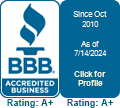Helping loved ones who have MRSA or Staph infections

When caring for someone with MRSA or Staph there are important things you should know and risks to avoid.
Helping a husband or a parent to get rid of MRSA is a stressful, demanding and sometimes a frustrating experience. And caring for a suffering child with MRSA or Staph is especially heart wrenching. On top of the responsibility of being a caregiver, you also need to protect yourself from getting infected. The last thing you need is to catch this superbug and find yourself in the same boat as the person you’ve been trying to help.
Being a MRSA caregiver often means walking a fine line between providing care and overstepping your bounds. Even if you know what to do, you still need support from the doctors and buy-in from the person you’re trying to help.
- What if the person you’re trying to help won’t listen or accept your help?
- How do you help without stepping on doctor’s toes?
- What can you do to keep from getting infected yourself?
The best thing you can do
The best place to start when caring for a loved one is to educate yourself about these infections. You can give the most help when you know all the treatment options available and what common treatment mistakes to avoid. And the most important thing of all is to keep yourself from getting infected.
In this section of the website you’ll find resources and assistance to become a better caregiver. The menu on the left side of this page will show you what you need to know to help your loves ones overcome these challenging infections.






